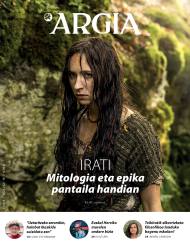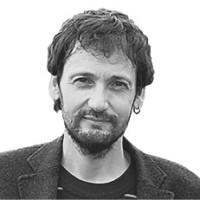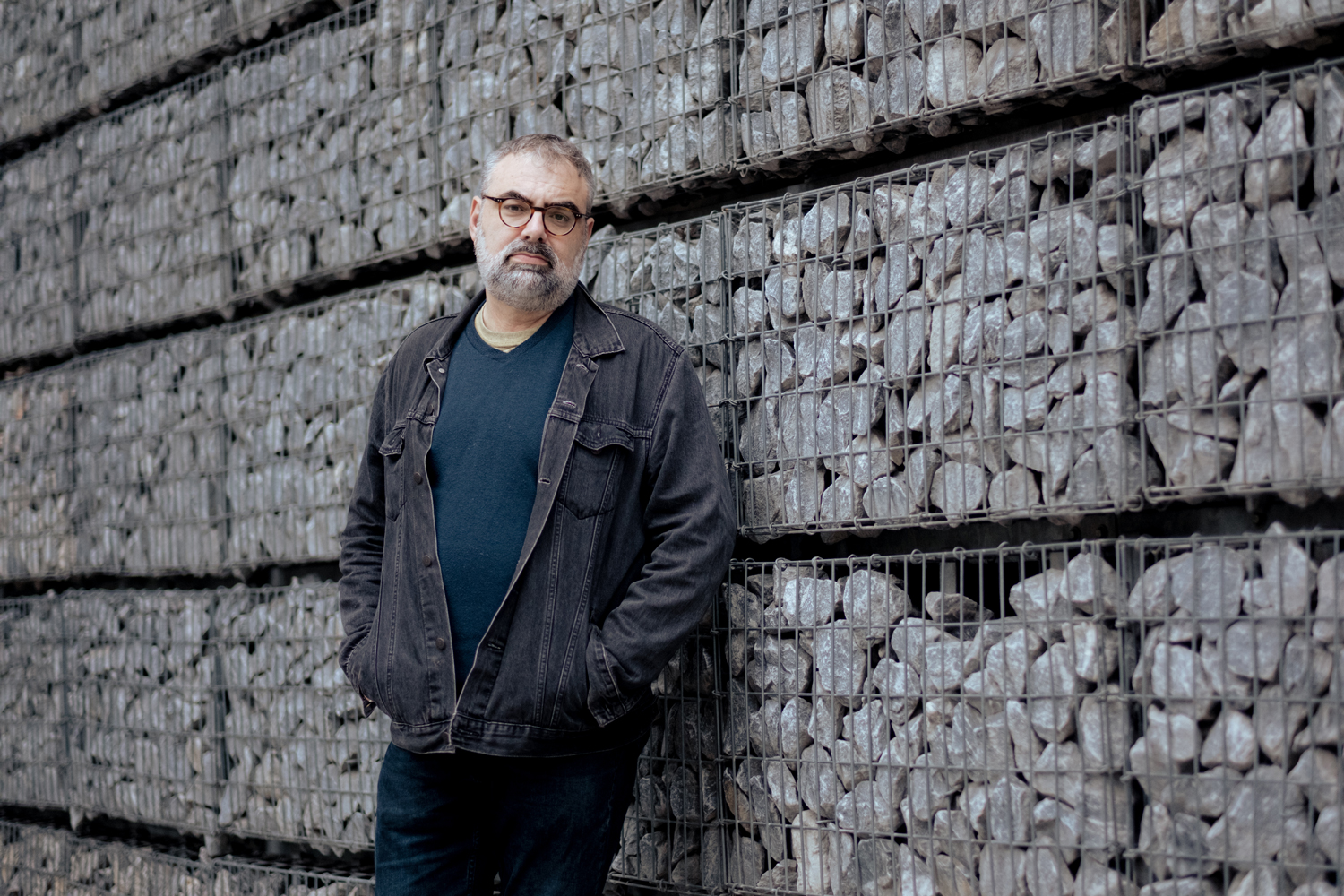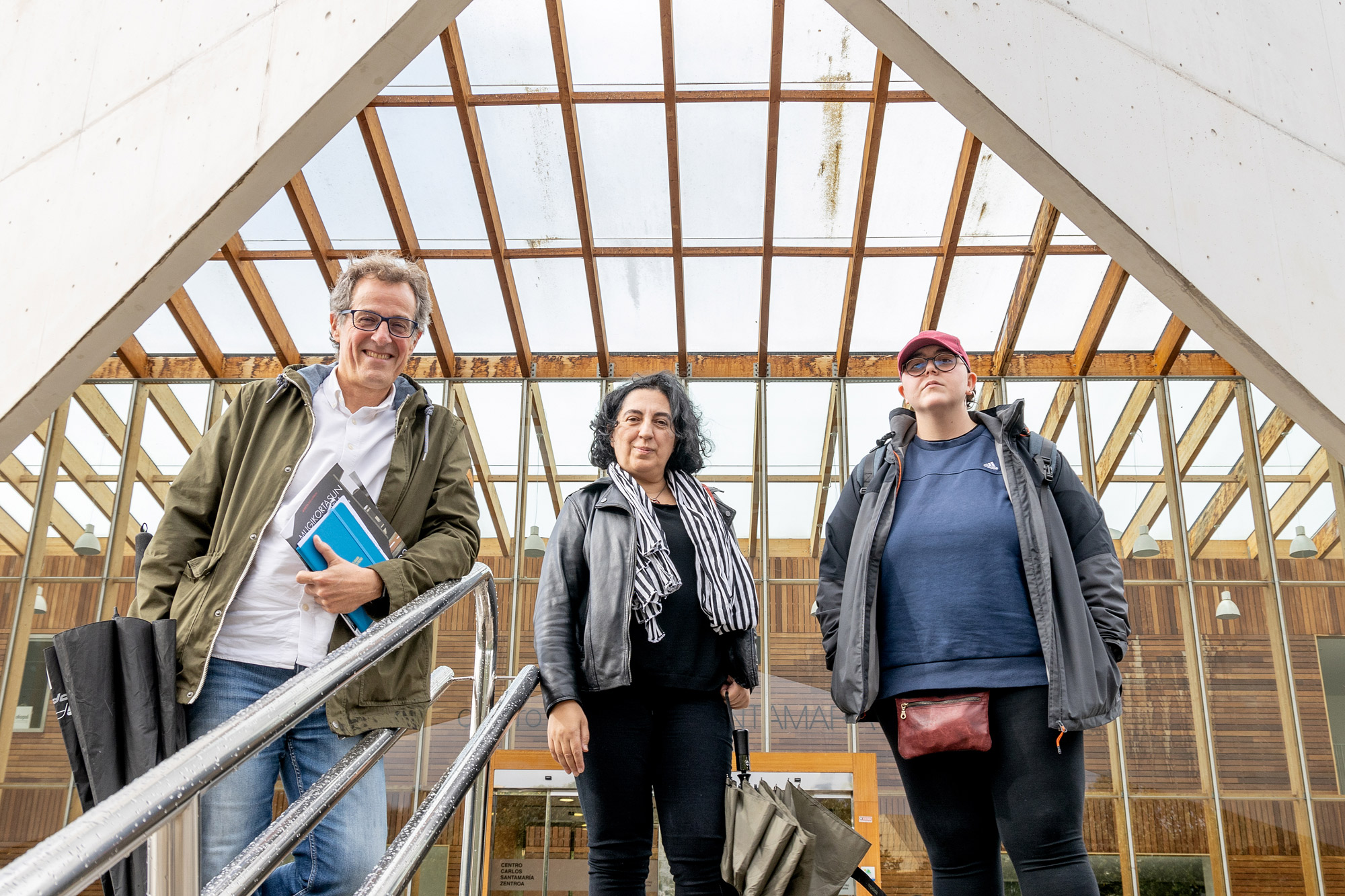"If kids realize that we're looking to come to a conclusion, maybe they're keeping what they really think."
- Why not work the philosophical dialogue since childhood to learn to think, to deepen ideas, to critically analyze contents? We have asked the philosopher Miren Camison how he records himself, what are the good questions, what to do in the face of “inadequate” opinions… He has also given us a starting point to guide philosophical dialogues: to eliminate the prejudices and dogmas that we have ourselves, “because we will be more clear that we review ourselves to deal with philosophy with children and young people”.

Miren Camison lives in Mexico, but through the Philosophy Factory she teaches workshops and online courses in Euskal Herria. In collaboration with the cooperative Arizmendi, the philosophical novel Kio eta Gus, aimed at children from 8 to 10 years old, and the guide for teachers for its elaboration (Surprising before the world), is the excuse with which we interviewed.
What is the
difference between philosophy for children and adults? The first thing we must place is the philosophy of children: it is a branch of philosophical practice. For years the theory (academy) and philosophical practice have been separated and for about 40 years the philosophical workshops, the philosophical cafes, the philosophical advice (in the consultation of a philosopher we can make a process of self-knowledge instead of going to the psychologist) and the philosophy of children. Nowadays, in general, we prefer a philosophical culture that does not differentiate the practice of theory, because it is false dualism, because all human beings have a philosophical dimension, more conscious or more unconscious, we all have a vision of the world, and that dimension can be worked from what we are, from the very beginning we can create spaces to work it. What is the difference in the practice of philosophy between children and adults? Vital experience: adults have more experience, sometimes more prejudice and dogmatic ideas that we have not reviewed and children are cooler. The resources and methodologies for philosophical practice adapt to age, or more specifically to the characteristics of the development phase, but the essence does not change.
And what difference is there with children between dealing with themes through a master class, projects… or philosophically? In the school we have had fundamentally three models: the transzionist model (the student gathers what the teacher explains), the constructivist model (research projects, teamwork… for the student to seek meaning to what they learned), and now we have a third model linked to the philosophical or dialogic practice to learn to think in class. It is important to be critical of the contents being worked on, not by themselves, but as a group, through dialogue. My experience is that I ended up tired as a young man with the trans-Brazilian model; now I think that children
need balance and harmony between all models, but that we adults have not invented. As you see a master class, it is important to have spaces to think and dialogue about the contents, so as not to fall into indoctrination. Educational policies often go from one end to the other and are partial views; I am not fashionable: it is important to memorize the contents and it is important to review them critically.
"The driver does not think, poses with questions other visions of darkness, disassemble ideas or delve into them"
You also learn to think and reflect. Yes, our internal
dimension is to reflect, we reasoned it from a young age, but since they are children we must give them the right spaces to do so, to work that muscle.
How do you work this muscle are questions? Questions are
one part of the philosophical dialogue, the other are answers. And yes, questions are very important to the extent that they oppose ideas, to the extent that they are problematic. An idea may seem very simple, but if we do a stress test, through refutation, through punctual questions… it leads us to think more deeply, to discover different points of view, without seeking a single answer. And it's an interesting path, because the communicator model leads us to a single answer.
We relate philosophy to cognitive work. Do emotional and social skills fit? On the one hand, reason has been raised and on the other, emotions, but we know that we are integral human beings: what we think leads to emotion. The philosopher Matthew Lipman states that thought
has three dimensions: critical thinking, creative thinking and responsible or attentive thinking, that is, ethical thinking, empathic thinking, caring for oneself and others… and I would highlight a fourth dimension: interiority, because philosophical dialogue allows one to know oneself better. We're not looking for therapy, but sometimes it has a therapeutic effect because it has a lot inside of it.
"Lipman lived the Vietnam War and thought that if we started from a young age in the centers we created a culture of dialogue, from philosophy, in maturity they won't reach them."
Is ethics then part of philosophy? Yes, philosophical dialogue applies in practice some ethical values in itself: humility and respect for what the other says, the courage to participate in dialogue but not to talk too much, collaboration among the participants… It is cooperative dialogue, because knowledge is built with collective reflections, but that does not mean that there are no
different ideas and disagreements, that there is no need to problematize ideas.
Matthew Lipman is behind the philosophical novel Kio and Gus. Lipman and Ann M. Sharp created an extensive resume to work from 3 to
18 years in the United States from the 1980s to the 1990s, and although today we have more and more philosophical material, I would say it is the most rigorous and profound material of that origin. Lipman lived the Vietnam War and thought that if in educational centers we started to create
a culture of dialogue from childhood, from philosophy (not only working reason, but also the argument that accompanies that ethics and care), when they are adults they will be able to deal with conflicts in another way before reaching a war situation. This was the impulse to address the themes that address philosophy: truth and lies, life and death, justice, aesthetics, identity… To delve into them, Lipman created philosophical novels adapted to age or to the development phase; novels are starred by children, collect their experiences and their conversations, and put many hooks to encourage reflection between children and young people. In addition, he developed manuals for teachers for the correct treatment of novels and philosophical dialogue is at the heart of the methodology he uses: how to ask questions and answers. Because that's fundamental, but for me, for example, when I studied Philosophy, I was only taught theory.
"A teacher worked on philosophy in Early Childhood Education and when the children went to Primary, the new teacher told him he could not teach, that the children asked him many questions."
And what are the keys to guiding philosophy with children? They say that good questions are the focus, but what is it to ask good questions? The question and the answer
are two things that need rigor: to ask good questions is often to refute what the other has said through a question, or to get out of that knowledge that the other has inside. We must also pay close attention to the bodies of children and young people, because sometimes we communicate much more through the body than through words. Just as emotionally, why does an idea irritate us? The driver does not think, exposes with questions other perspectives that are in the dark, dismantles ideas, or delves into them to see where they lead us... I feel that I never spare myself training, that I am always learning; that philosophical dialogue is not a technique, it is an art.
He who leads the conversation doesn't think, he says. What to do if a child's opinion seems very inadequate? The instruments are those mentioned in the previous answer, which allow to show contradictions or bring the approaches to the absurd: if we take an
idea to the extreme, what consequences does it have? And you have to keep in mind an interesting key: we're not alone, we're in a group, and the group has a huge force, even when it comes to self-regulation: in a conversation I'm really listening to, I'm open to others' ideas coming to me, rather than being closed to my ideas and concepts. In adults this closure is more frequent, children are more open, not so dogmatic.
So, I'm going to take the opposite direction: maybe the dogma of adults and prejudice has made this child's opinion very inadequate. That is, for whom is barbarity what that child
has said? What glasses do we say is barbaric? That is why it is so important to analyze and review ourselves; we cannot know the reality if we do not know our own limitations and beliefs. In philosophical consultation, for example, we do so because we'll be cleaner than we'll be looking at philosophy with children and young people.
"We're not looking for therapy, but sometimes it has a therapeutic effect because it touches a lot of things inside."
Are children saying what they really think or what adults want to hear? You read us. If you read that we're going with an expectation, that what we're looking for from them is to reach a certain conclusion, maybe they keep what they think, but when they see that I'm just thinking about
something together, the result is different. According to my experience, parents may be in the session with children up to 7 years old, but from the age of 8-9 years old not, and they ask me if I am going to tell parents what we do in the session; when we guarantee confidence and confidentiality, when we act honestly and clearly, there is greater freedom for the group.
What would you highlight about philosophical practice programs with children? A single session does not leave any big seeds, I see that a group transforms when there is a process, when they have been applying this methodology for some time. The smaller they are, in Early Childhood Education and in the early years of Primary Education, they tend to associate philosophical dialogue with their experience; then they tend to abstraction and in youth abstraction and criticity are
at the highest level. Doing a philosophy session with young people is a bomb, because it is screaming with master classes to take that internal dimension out. Child Education also works the body, the emotions -- but as age increases, everything becomes more cognitive, the imbalance increases. A teacher in Early Childhood Education told me that I had worked philosophy with the students, and when the kids had gone to Elementary,
a new teacher came and said I couldn't teach, that the kids asked her a lot of questions. The teacher of Early Childhood Education planted seeds that will give their way, but if they persist, the seeds become transformative processes, as has already been mentioned. On many occasions it has touched me to lead groups that have practiced philosophical dialogue in Early Childhood and Primary Education (I have not met him in Euskal Herria) and are noted both in respect for others and in his ability to work ideas: they are used to ask, to be critical…
But do we adults not cheat? We say that we want children and young people with their own critical opinion, but we do not like it when they question what we say, both at home and at school. And the promotion of philosophical dialogue in one subject and the lack of criticity in the other is in contradiction. Lipman
said that if philosophical practice is to be promoted in a school since childhood, a community of dialogue between professors should be created that meets periodically for everyone to work in the same direction and in a manner consistent with the students. That is the ideal, but in reality we still have many challenges.
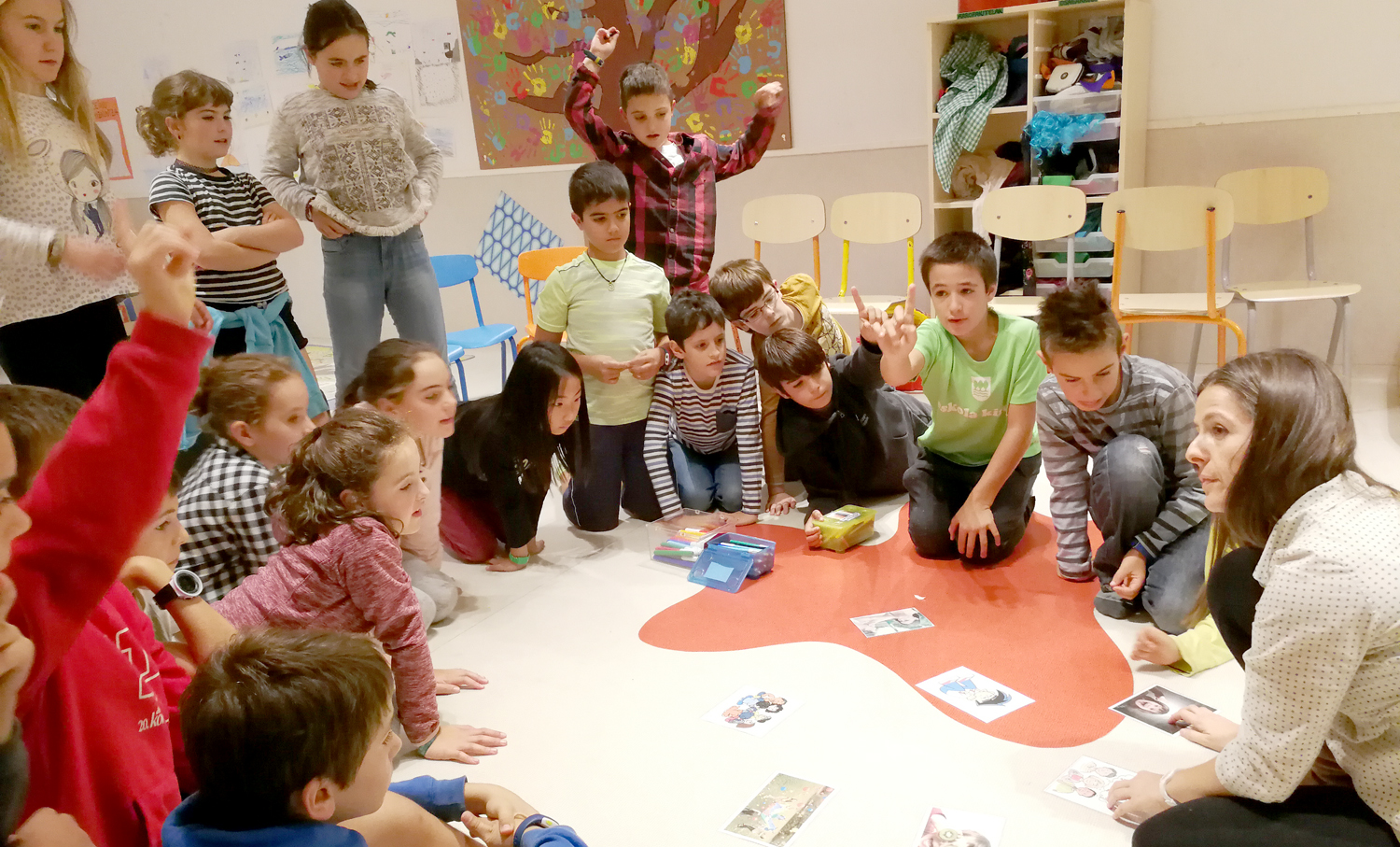
Entrepreneurship is fashionable. The concept has gained strength and has spread far beyond economic vocabulary. Just do it: do it no more. But let us not forget: the slogan comes from the propaganda world. Is the disguise of the word being active buyers? Today's entrepreneurs are... [+]
Isn't it a sign of pride to look at the people in front of me as if they weren't people? Yes, of course yes. But how can we expect others to understand? Understand, observe, look. Does wanting to understand others not require this proud attitude? Knowing what it is to be a person,... [+]
Are we running out of shame? This is the diagnosis of several authors today. Is there no longer a look that can embarrass us? Another thing that Jean-Paul Sartre described in 1943 around shame is that on the other side of the lock, with the eye stuck in the key slot, a person is... [+]
Predicting the end of anything has become fashionable. The end of the human being, ideologies, community, authority, philosophy, or democracy. Are they labels full of sensationalism?
Maybe it was Francis Fukuyama who started that final fashion. After the collapse of the Berlin... [+]
The most promising futures are more concerned about the future than the long-term ones. It's the CCCLXIX law of life. It seems like a mouthpiece, but the laws of life I don't write them, but life itself.
That law, like all authentic laws, has exceptions, but what exceptions are,... [+]
Today there are many apps to buy friends: The best known are AlquiFriend and Ameego, which seem to work very well, especially in the big cities of the United States. They have about 600,000 users. Pay 120 dollars to someone and for a couple of hours you go to the restaurant... [+]
The body issue has gained weight in current speeches, it appears to us in many ways. However, these are relatively recent debates in which the body has been quite marginalized in the history of Western thought compared to other times.
To me the truth is that they help me apply... [+]









